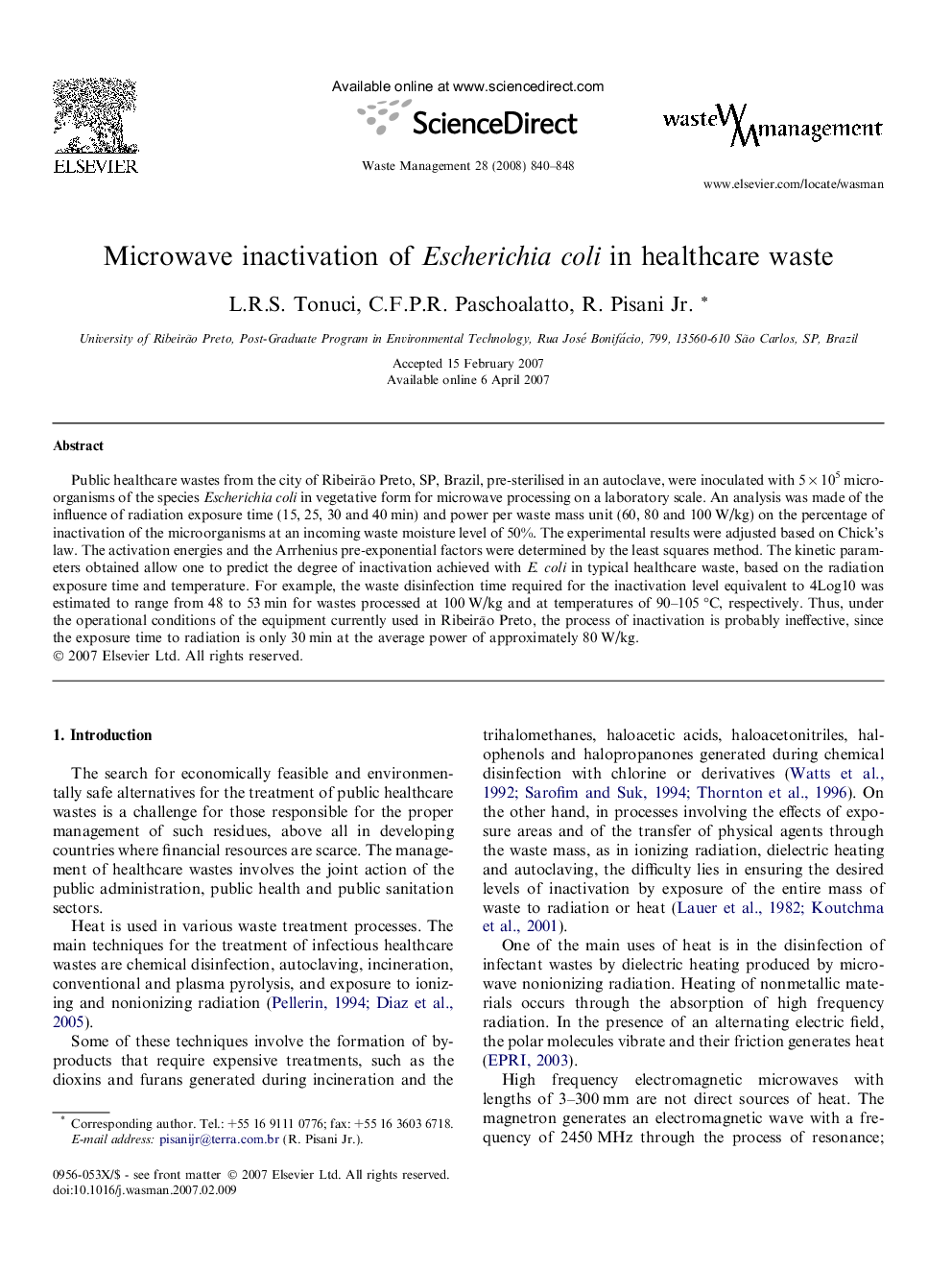| Article ID | Journal | Published Year | Pages | File Type |
|---|---|---|---|---|
| 4473414 | Waste Management | 2008 | 9 Pages |
Public healthcare wastes from the city of Ribeirão Preto, SP, Brazil, pre-sterilised in an autoclave, were inoculated with 5 × 105 microorganisms of the species Escherichia coli in vegetative form for microwave processing on a laboratory scale. An analysis was made of the influence of radiation exposure time (15, 25, 30 and 40 min) and power per waste mass unit (60, 80 and 100 W/kg) on the percentage of inactivation of the microorganisms at an incoming waste moisture level of 50%. The experimental results were adjusted based on Chick’s law. The activation energies and the Arrhenius pre-exponential factors were determined by the least squares method. The kinetic parameters obtained allow one to predict the degree of inactivation achieved with E. coli in typical healthcare waste, based on the radiation exposure time and temperature. For example, the waste disinfection time required for the inactivation level equivalent to 4Log10 was estimated to range from 48 to 53 min for wastes processed at 100 W/kg and at temperatures of 90–105 °C, respectively. Thus, under the operational conditions of the equipment currently used in Ribeirão Preto, the process of inactivation is probably ineffective, since the exposure time to radiation is only 30 min at the average power of approximately 80 W/kg.
